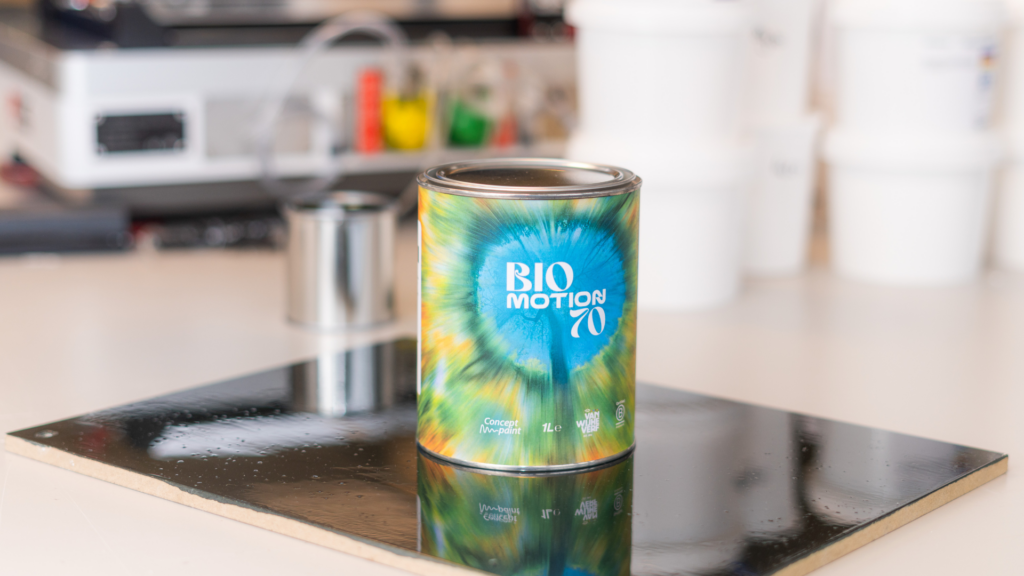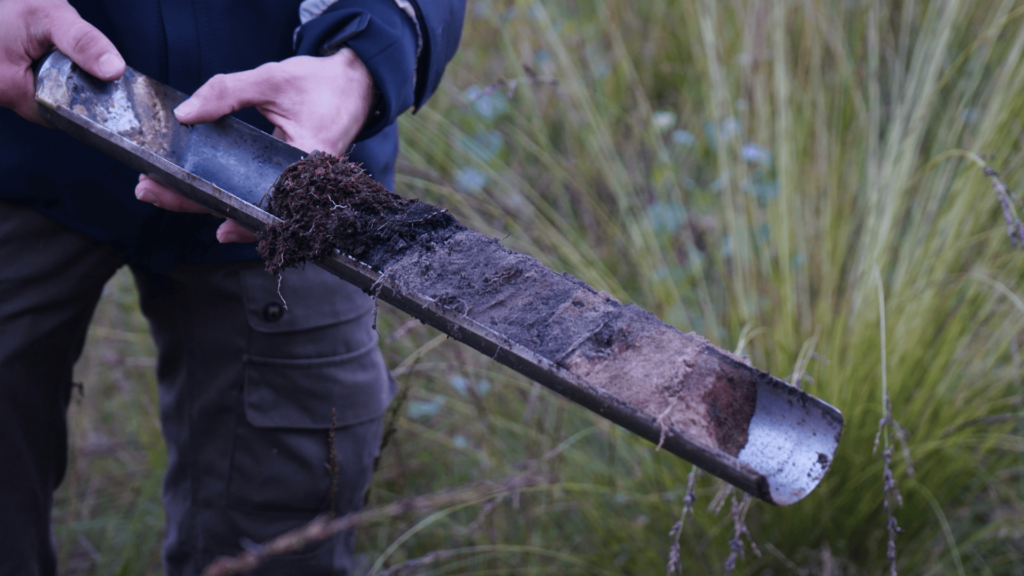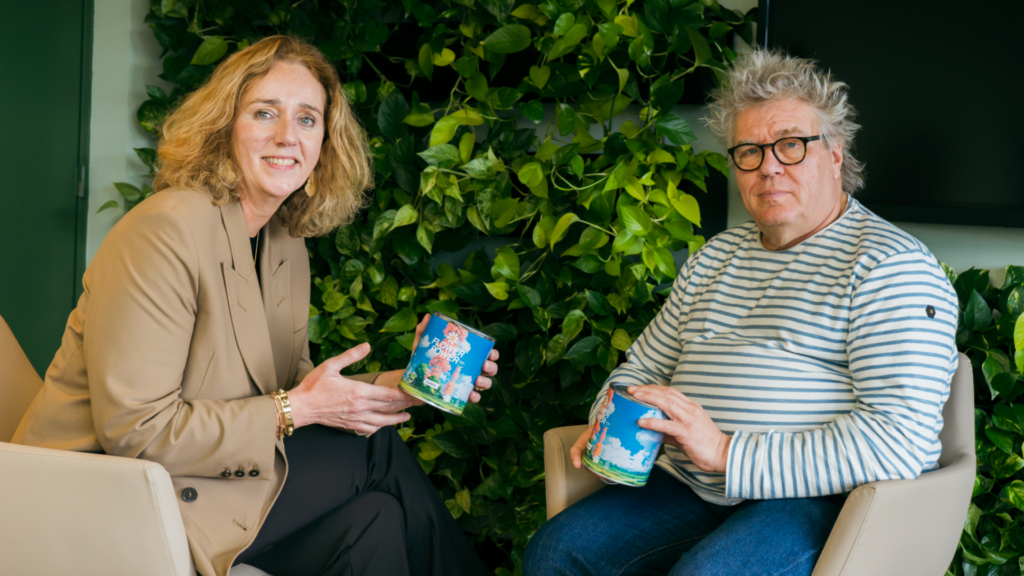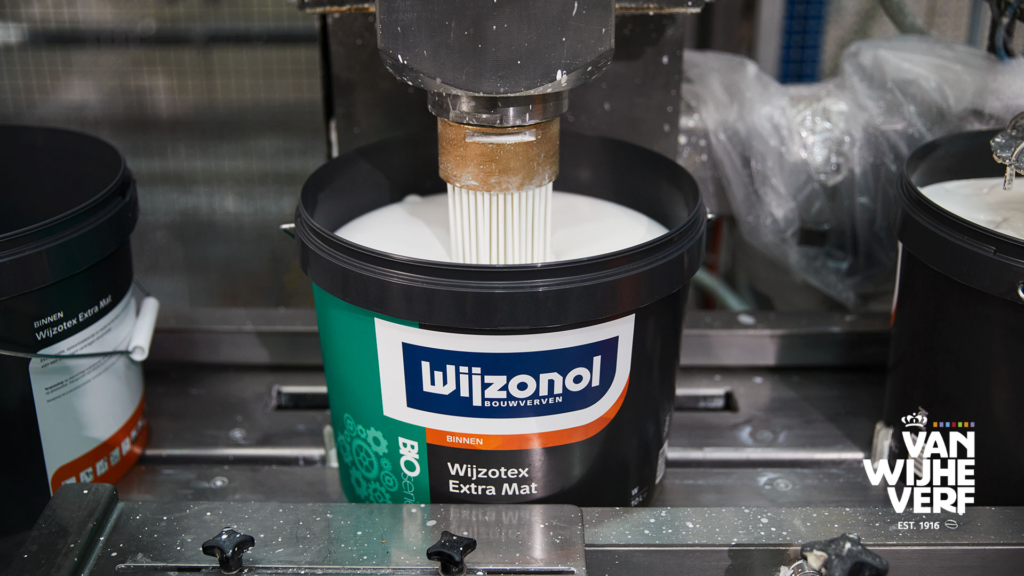Following the publication about a new highly biobased synthetic high gloss exterior paint in December, Royal Van Wijhe Verf, in collaboration with raw material and binder supplier Relement and Worlée B.V., respectively, had this paint tested by property maintenance companies SW Vastgoedverbetering and Koestr. Despite the product being in the experimental phase and being launched as a Concept Paint, the reactions were above average positive in terms of processing and result. ‘You are on the right track,’ said the painters.

Acting together is the key
BIOmotion70 is a second innovation released under the Van Wijhe label “Concept Paint”. It is an alkyd high-gloss paint with a 70% biobased content.
Van Wijhe believes that the sustainable transformation in the paint and maintenance industry will have a huge impact on current technologies and practices. This transformation can only be successful if there is collaboration from an early stage and sharing knowledge throughout the chain. It is essential to join forces and work together on innovative solutions.
Trust, transparency and acting together are therefore more important than ever. Managing director Marlies van Wijhe: “The social mission we all have in the chain requires targeted partnerships. These collaborations lead to new insights, which we so desperately need. This practical test is a great example”.
Acceptance is crucial
Innovation is only successful when customers are open to it and accept the products. It is therefore important to include them in the innovation process early on and to listen to what they need to remain successful and distinctive. Instead of waiting for regulations aimed at the CO2 reduction targets in the Green Deal, Van Wijhe Verf wants to anticipate with innovative solutions for the maintenance market. Eric Deen, R&D manager: “That is why we tested the BIOmotion70 together with SW Vastgoedverbetering and Koestr. The user’s application experience determines whether your product will be accepted, besides of course the long-term performance.
We received valuable feedback to further optimize the paint. Overall, the painters were very satisfied with the application and initial results. They did not expect such a sustainable synthetic paint to achieve such high performance.”

Scaling up sustainable raw materials supply
Van Wijhe Verf notices that the chain is on the move. There is awareness and the will to take the sustainability plunge. Many property maintenance companies have now made the transition and also see among their clients that they are aware of the consequences and are even thinking about possibly changing performance requirements.
A concern lies ahead at the other end of the chain, namely the availability of the right sustainable and circular raw materials and the volumes required. This is currently still far from sufficient to serve the market with the paint products of the future. It is important to accelerate there.
With Concept Paints, Van Wijhe Verf is trying to create movement among suppliers as well. Boundary-pushing innovation, advancing insight and decisiveness throughout the chain are the necessary ingredients to initiate the sustainability transformation. Only together we can make this change successful.










